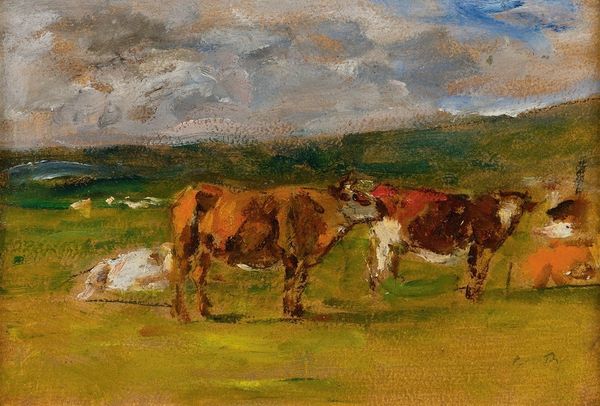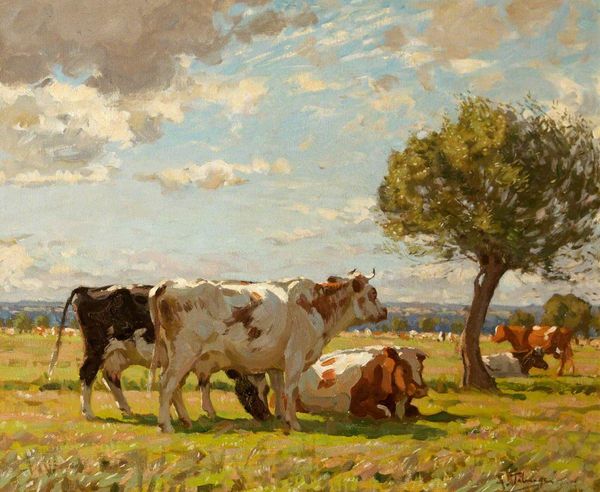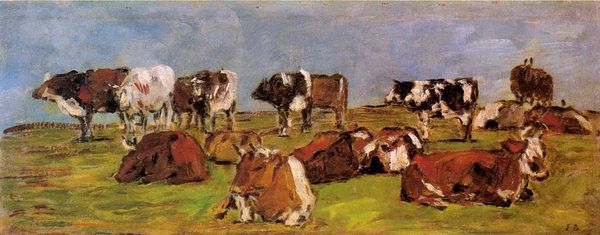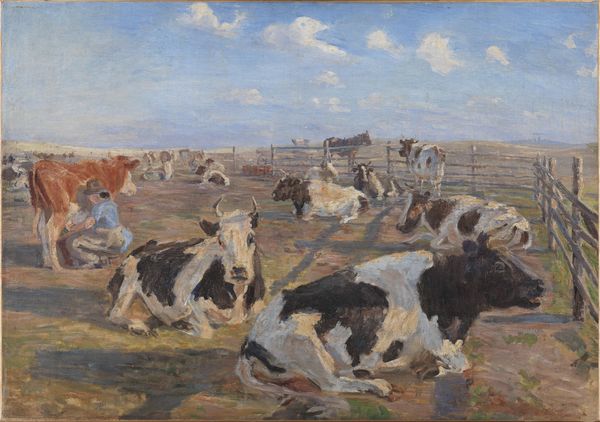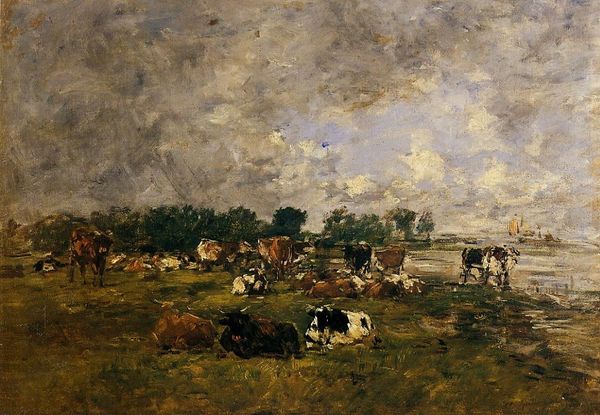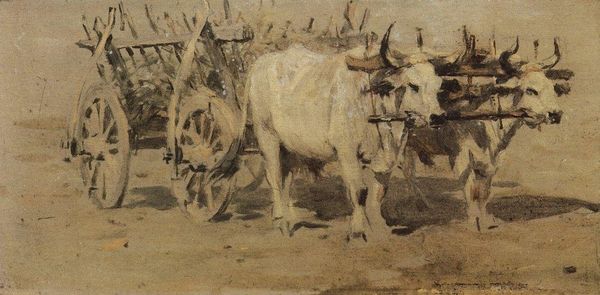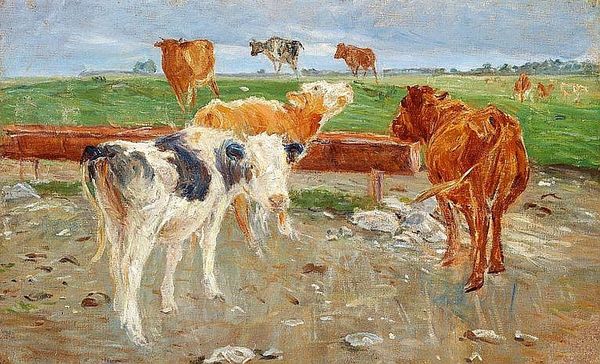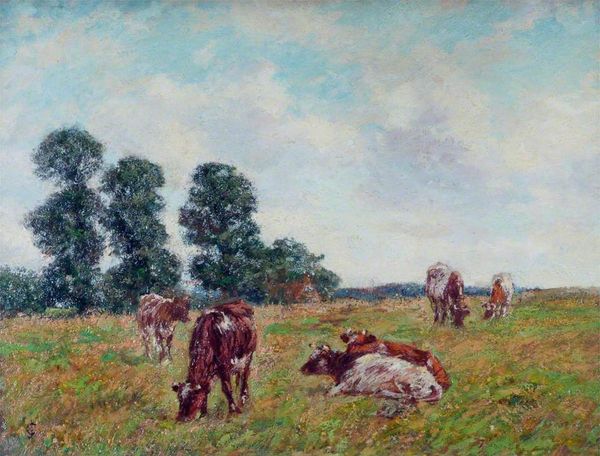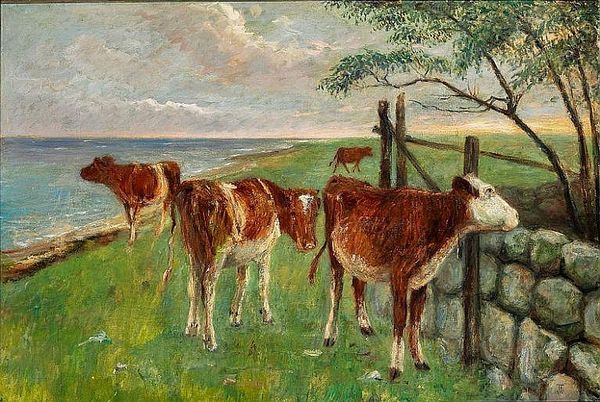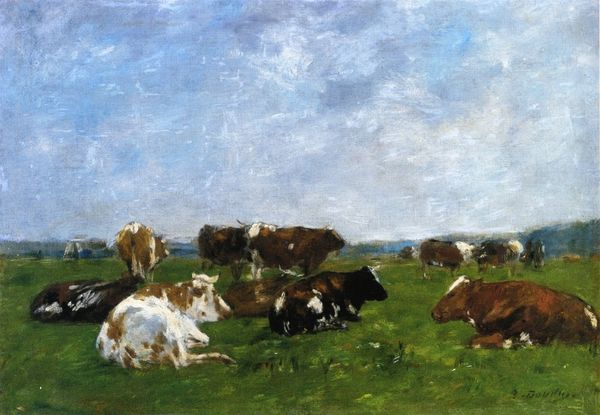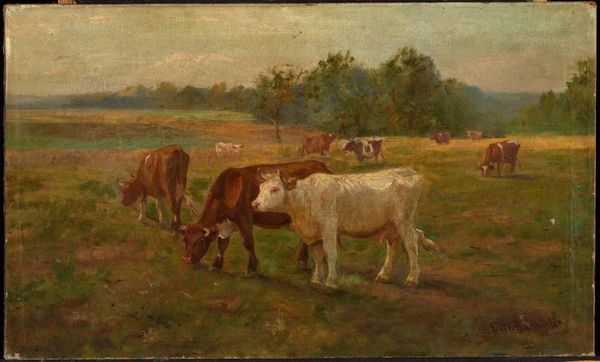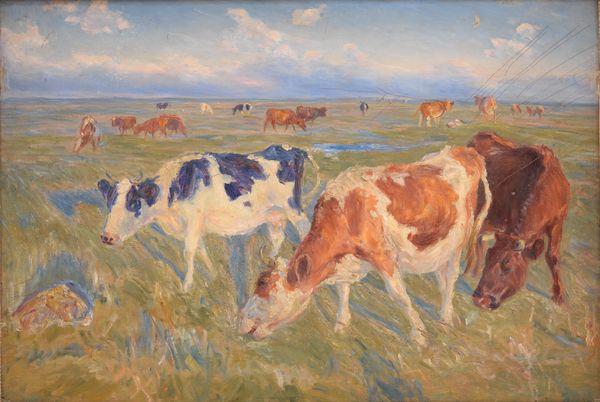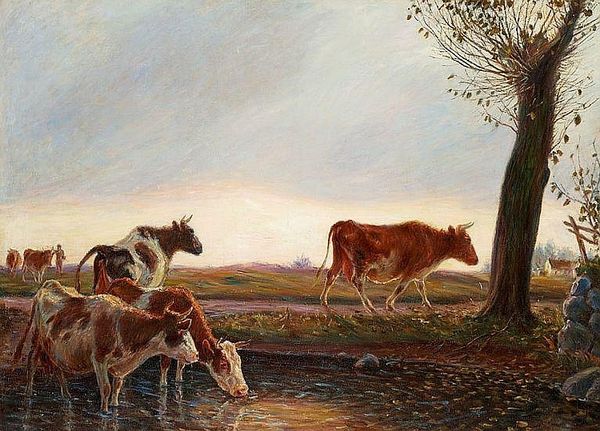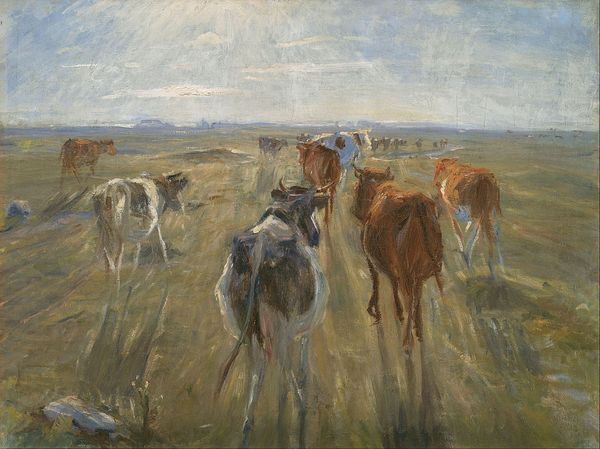
painting, plein-air, oil-paint
#
portrait
#
sky
#
animal
#
painting
#
impressionism
#
plein-air
#
oil-paint
#
landscape
#
impressionist landscape
#
oil painting
#
france
#
realism
Copyright: Public domain
Curator: Eugène Boudin's "Cows in a Pasture," created in 1883, offers a glimpse into the pastoral life of 19th-century France. What's your first impression? Editor: Overcast. A bit melancholy. It feels as though the very materiality of the scene–the thick oil paint, the weighty sky–bears down on the herd. Curator: Boudin, a forerunner of Impressionism, was deeply influenced by the Realist movement and the social concerns that underscored it. Consider the depiction of labor; agricultural work in France during this time was romanticized, but also intensely demanding for those reliant on this economy. Editor: Exactly. And you can feel that labor in the landscape itself. The earth is rendered with a sort of gritty honesty, very different from idealized academic paintings of the countryside. These are not decorative cows, but working animals within the structure of land management and consumption. Curator: He studied the sky meticulously, as is quite clear. His skies, in fact, earned him praise from Monet. Editor: Look at those brushstrokes though. The way he builds up the sky from such heavy strokes feels like the accumulation of moisture. And then look at the cows themselves, formed from quick strokes which make them appear very much apart of this landscape, in their role of labor and industry, their materiality almost blends into their function. Curator: Interesting. So, for you, it’s more about the depiction of labor through materials? Editor: Inevitably. How could it not be when he's literally building a landscape of work out of earth pigments and raw materials? It reminds me that this isn't just a painting of cows; it's about how the land is used, commodified, and worked upon. It's about material engagement. Curator: I see your point. It encourages me to re-think the position of the farmers in the image. I mean in it’s social context within class. This image isn’t about pretty cows, it’s about their role. Editor: And their material reality, definitely a dialogue there between process, place, and class relations. Curator: Yes, thanks to you I have a greater understanding.
Comments
No comments
Be the first to comment and join the conversation on the ultimate creative platform.
